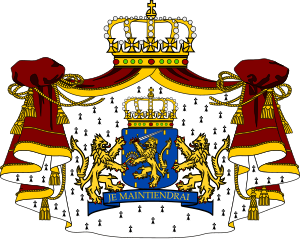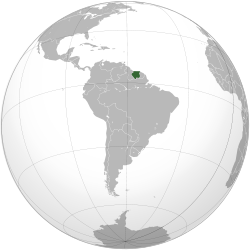| Image via Wikipedia |
In 2006 two gay men from Kosovo (Kadri Shala, born 1975 and Demir Krujezi, born 1981) first submitted their request to gain asylum in Slovenia. In Kosovo, where they used to live, they were persecuted on the grounds of homosexuality. Their application for the asylum in Slovenia, submitted in June 2006, was rejected by the Ministry of the Interior in February 2007.
The asylum seekers were ordered to leave Slovenia immediately. Due to procedural mistakes committed by the Ministry during the asylum procedure they brought charges first to the Administrative Court of Republic of Slovenia and later on to the Supreme Court of Republic of Slovenia.
Both court decisions were in favor of the plaintiffs. The Supreme Court ordered in May 2008 to the Ministry of the Interior to restart again the whole asylum procedure, according to the existing standards of international protection of asylum seekers. However, their case was closed down in July 2008 after both asylum seekers (depressed, victimized and in bad psychological condition) left Slovenia and went to seek help in the Netherlands. During their stay in Asylum Center in Ljubljana they suffered homophobic harassment and violence of the co-residents and the police.
Under the Dublin convention the gay couple was deported from the Netherlands back to Slovenia on 2 November 2009, where they asked (for the second time) for the international protection (asylum) on the ground of persecution based on sexual orientation.
After more than two years the Slovenian asylum authorities gave their decision, which was negative. Mr. Shala and Mr. Krujezi are being denied the right to international protection in the Republic of Slovenia with the decision of the Ministry of Interior, dated on 29 December 2011(received on 6 January 2012).
The arguments for rejection of the asylum application, given by the Ministry of Interior, are depicting the asylum seekers as unreliable and misleading, strongly suspecting of their credibility and undermining their truth. At the same time, the Ministry is saying that the situation in Kosovo today is not representing any danger for the safety of their life or any risk for them of being exposed to violence or discrimination if they return to Kosovo.
To support their decision the Ministry is even referring to the documents of the European Union, which suppose to serve as evidence that the human rights of LGBT people in Kosovo are well protected (sic!), such as European Commission’s Report on Progress of Kosovo, from 12 October 2012.
Considering this decision of Slovenian authorities, which we understand as unjust, discriminatory and shameful for a democratic state, both asylum seekers will now with the help of a lawyer open a dispute (bring charges) at the Administrative Court of Republic of Slovenia.
Nongovernmental association SKUC-LL, solicitor’s office and several lawyers, which are giving help and support to both asylum seekers since 2006, will continue to do so in the future. Both asylum seekers are in bad psychological condition and in need of medical treatment (which was available to them in the Netherlands, but not in Slovenia, where they are only entitled to medical assistance in a state of emergency).
Since 2006 we provided official data on social situation in Kosovo regarding violence and discrimination against GLBT people there (including the data by ILGA-Europe, etc.) to the asylum authorities in Slovenia and the Netherlands. Today still LGBT people in Kosovo are persecuted by the society, their families and threatened with death (blood-vengeance). It is highly dangerous for their lives if returned back to Kosovo.
ŠKUC-LL was established in 1987 within the framework of the feminist group Lilit as the first lesbian organisation in the former socialist Eastern European states.


































 Join our page
Join our page

